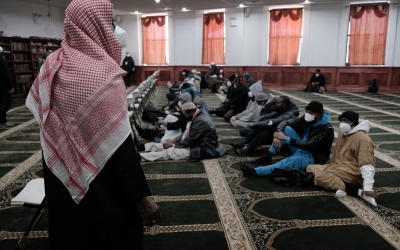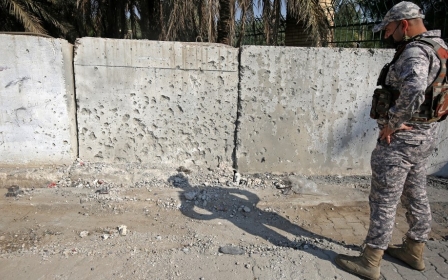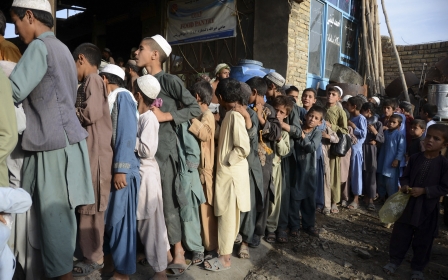Communities of colour bore brunt of post-9/11 surveillance excesses: Report

The post-9/11 increase in mass surveillance was carried out covertly, frequently bypassing constitutional and legal safeguards, and has imposed significant burdens on communities of colour, according to a new report from the Costs of War project at Brown University’s Watson Institute.
The report, titled Total Information Awareness: The High Costs of Post-9/11 US Mass Surveillance and released on Tuesday, says that although the term "mass surveillance" is typically associated with government monitoring, it now encompasses a diverse blend of federal organisations, local law enforcement, private enterprises and ordinary citizens.
The report highlights the overwhelmingly vast and intricate structure established to support post-9/11 surveillance, pointing out its lack of governmental transparency and the challenges in estimating its financial implications.
“Our ever-expanding surveillance systems have acquired an aura of inevitability, which organisers and regulators struggle against,” Jessica Katzenstein, a postdoctoral fellow at Harvard University and the National Science Foundation, said in a press release.
“Yet this normalisation is not itself inevitable, but has instead been underwritten in large part by the loosened regulations, heightened fear, racism, xenophobia, and flow of funding sanctioned in the post-9/11 era.”
New MEE newsletter: Jerusalem Dispatch
Sign up to get the latest insights and analysis on Israel-Palestine, alongside Turkey Unpacked and other MEE newsletters
According to the report, in the months after 9/11, the mass trauma of the attacks produced domestic support for expanding US surveillance systems.
Much of the expansion, though, was done in secret, “often in violation of the Constitution and US law”.
Communities of colour
While post-9/11 domestic mass surveillance affected all Americans, certain communities bore the brunt of suspicion, including people of Middle Eastern and South Asian descent.
"The immigration system clamped down on both documented and undocumented migration under the auspices of defending the homeland from malicious incursion,” the report read.
"People (mis)racialised as Muslim and Arab, immigrants and asylum seekers, racial justice and labour organisers, and other intersecting racialised and gendered groups have borne the brunt of these costs.”
The report further suggests that the post-9/11 state's emphasis on targeting racialised groups might have left it inadequately equipped to tackle the growing threat of white supremacist violence.
Establishing institutions and technologies designed to monitor large-scale activities as well as intricate details of personal lives has expanded the authority of law enforcement and businesses.
This expansion has often been challenging to roll back or even properly supervise.
“The expansion of post-9/11 mass surveillance has been cloaked in secrecy, with untold harms to communities of colour, civil liberties, and all of our privacy,” Stephanie Savell, the co-director of the Costs of War project, said.
Costs
According to the report, the impact of post-9/11 mass surveillance is vast and difficult to measure fully, even though the US government has poured billions, if not trillions, into it.
“The government has rarely been able to demonstrate that such funding, and all its attendant opportunity costs, has created public safety at a scale that merits the expense."
The report argues that the costs of mass surveillance must be measured in terms of people being taken from their families and homes, stifled speech, dampened social justice movements, and fear.
“Meanwhile, we are prioritizing funding these programs over addressing true societal needs like education, healthcare, and reducing poverty. It’s time for a reckoning with - not an expansion of - post-9/11 surveillance programs.”
The yearly US intelligence budget saw an increase from roughly $40bn in the late 1990s to $80bn by 2020. According to the report, public funds have also been squandered through opportunistic profiteering, wastage, fraud, and misconduct.
For example, five years after its inception, the Department of Homeland Security was identified as having managed contracts that went over budget, faced delays, or were scrapped, amounting to $15bn in excesses.
Middle East Eye delivers independent and unrivalled coverage and analysis of the Middle East, North Africa and beyond. To learn more about republishing this content and the associated fees, please fill out this form. More about MEE can be found here.





